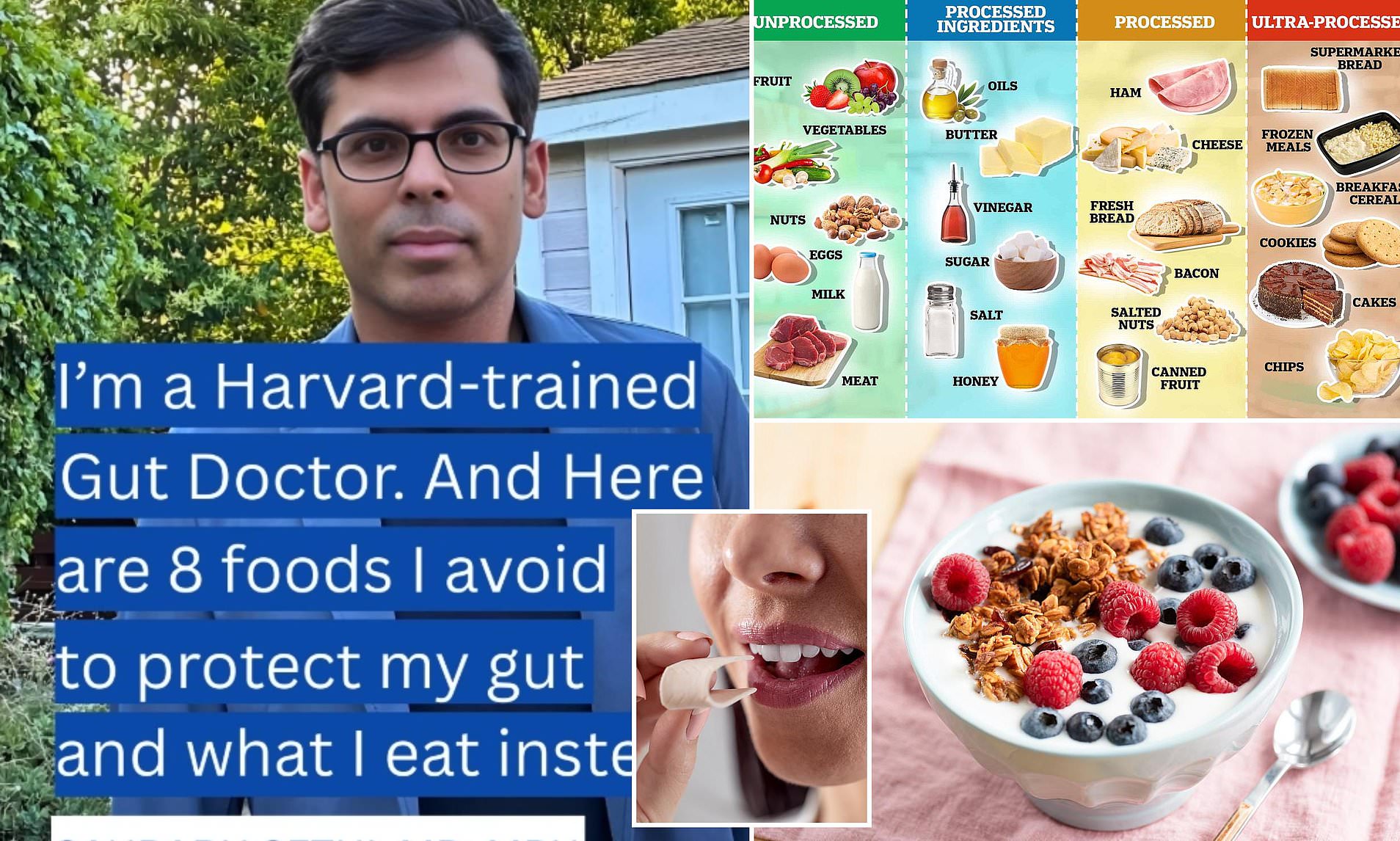
Hidden Dangers in Everyday Foods: A Gut Expert's Warning
Many people believe they are making healthy choices when it comes to their diet, but some seemingly wholesome foods may actually be harming their gut health. Dr. Saurabh Sethi, a Harvard-trained gastroenterologist with over 1.2 million Instagram followers, has shared his concerns about the hidden dangers of certain popular food items that can lead to inflammation and digestive issues.
The Problem with Ultra-Processed Foods
Dr. Sethi highlights that many products marketed as healthy—such as snack bars, granola, and fruit yoghurts—often contain ultra-processed ingredients that can negatively affect the gut. These include preservatives, artificial sweeteners, and emulsifiers, which may not be immediately obvious to consumers.
Emulsifiers and Their Impact on Gut Health
Emulsifiers are commonly used in processed foods like yoghurts and breakfast cereals. According to Dr. Sethi, these additives can alter the structure of the gut lining, forming a gel-like clump that may interfere with digestion. This disruption could potentially lead to bacterial infections by affecting the natural separation between the fatty and water layers in the gut.
Instead of reaching for a highly-processed snack bar, Dr. Sethi recommends healthier alternatives such as a handful of nuts or fruit with nut butter. Nuts are naturally high in fibre, protein, and omega-3 fats, all of which are associated with lower risks of heart disease, stroke, type two diabetes, and bowel cancer.
Flavoured Yoghurts and Granola: A Hidden Sugar Trap
Flavoured yoghurts, often perceived as a healthy option, are packed with added sugars and artificial flavourings. Dr. Sethi warns that granola with added sugars can be even worse than desserts. He suggests starting the day with porridge oats or plain yoghurt topped with berries and chia seeds. Berries and chia seeds are rich in antioxidants that help combat free radicals linked to diseases like diabetes and cancer.
Beware of 'Healthy' Snacks and Condiments
Even snacks and condiments that claim to be 'sugar-free' or 'healthy' should be approached with caution. Dr. Sethi points out that sugar-free gum contains artificial sweeteners like sorbitol, which can cause gas, bloating, and diarrhoea. Instead, he recommends chewing fennel seeds after meals to aid digestion and freshen breath.
Pre-prepared salad dressings, even those labeled as healthy, often contain inflammatory oils and added sugars. Dr. Sethi advises making a fresh dressing at home using olive oil, lemon, mustard, and herbs. Refined seed oils such as canola, soy, or corn oil are also flagged due to their high omega-6 fat content, which may be as harmful as traditional animal fats.
Milk and Lactose: A Potential Trigger for Digestive Issues
Dr. Sethi also advises reducing milk consumption, especially for those with lactose intolerance. Lactose can cause bloating and discomfort in sensitive guts. He suggests opting for plain coffee or adding cinnamon and almond milk instead.
Instant Noodles: A Gut Health Hazard
Instant noodles are another item on Dr. Sethi’s list of foods to avoid. They are high in preservatives and low in nutrition, which can harm gut microbes. For a healthier alternative, he recommends pouring broth over rice noodles and vegetables for a quick meal.
The Link Between Sweeteners and Early Puberty
Dr. Sethi’s warnings come as new research suggests that children consuming diets high in sweeteners may be at higher risk of early puberty. Common sweeteners found in drinks like Diet Coke and chewing gum have been linked to cancers and heart issues. Recent studies from Taiwan indicate that high levels of these additives could trigger central precocious puberty, where signs of puberty appear before the age of eight in girls and nine in boys.
Higher consumption of added sugars is also associated with earlier puberty, increasing the risk of conditions such as depression, diabetes, and cancer.
Making Informed Choices for Better Gut Health
Dr. Sethi emphasizes the importance of being aware of hidden ingredients in everyday foods. By choosing whole, unprocessed options and avoiding ultra-processed items, individuals can support their gut health and reduce the risk of long-term health issues. Making small changes in dietary habits can have significant benefits for overall well-being.


Posting Komentar